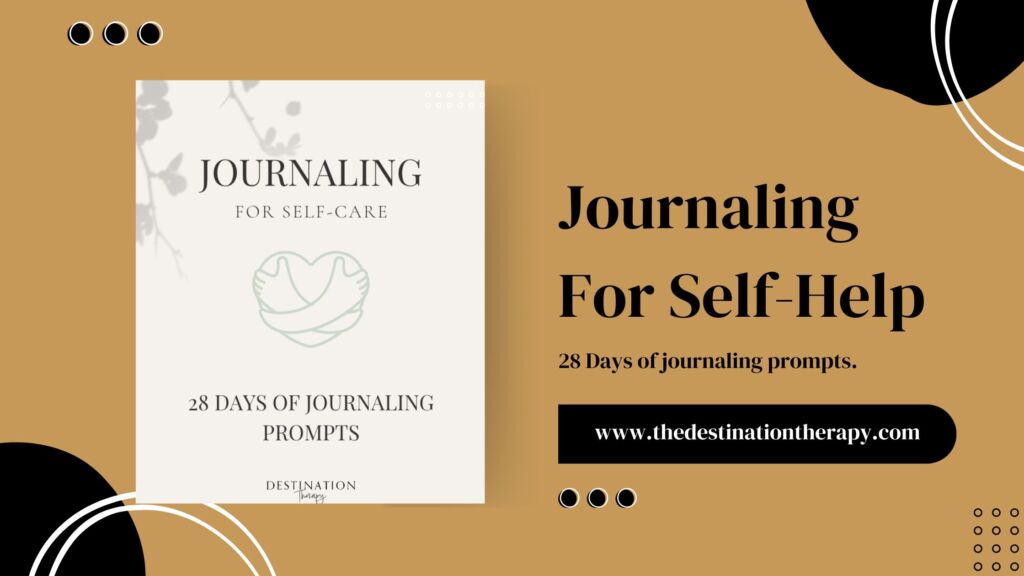These days, a lot of professionals are finding that while their careers are going well, their relationships don’t feel as strong as they used to. It’s hard to balance work, goals, and connection, especially when long hours and constant responsibilities make it difficult to switch out of “work mode” at home.
At Destination Therapy, we often meet couples who genuinely care for each other but feel stuck in patterns that leave them distant or disconnected. Couples therapy for busy professionals and sex therapy for high achievers aren’t about blame; they are about rebuilding closeness and understanding what gets in the way when life gets demanding.
If you’ve ever felt like your relationship is taking a backseat to your career, you’re not alone. In this blog post, we’ll talk about why success can sometimes make intimacy harder, how therapy can help you reconnect, and what you can do to keep your relationship strong, even when life gets busy.
Table of Contents
The Myth of Having It All
You’ve done everything right. You’ve built a career you’re proud of, created a comfortable home, and built a life that, on paper, looks complete. You care deeply for your partner and share the same values, ambition, growth, and responsibility. But lately, something feels off. You catch yourselves rushing through dinner, checking emails mid-conversation, or falling asleep before you’ve had a real moment together. Even when you’re in the same room, it can feel like you’re living parallel lives.
It’s not that love has faded; it’s that life has gotten busier. Between work demands, family responsibilities, and the pressure to stay on top of everything, connection can slowly fade into the background. We’re often told we can “have it all,” but no one really talks about the potential pitfalls: exhaustion, quiet resentment, and the uneasy sense that success has started to take up the space where closeness used to be.
The Perfectionist Mindset and Constant “Performance Mode”
Many professionals run on perfectionism, wanting to excel at work, show up fully at home, and do everything just right. But underneath that drive is often a quieter fear: the fear of not being enough. When you’re always performing, there’s little room left to just be. Vulnerability and imperfection, the things that make emotional intimacy possible, start to feel unsafe or inconvenient.
It can sound like:
- “We’ll plan something romantic when things slow down.”
- “I’m just too tired to talk right now.”
- “Once this project is done, I’ll have more energy.”
But “later” rarely comes. And in the meantime, what’s lost is the simple comfort of being seen and accepted, even when you’re not at your best.
Emotional Unavailability Disguised as Ambition
Ambition is a strength, but it can also become a shield. For many high achievers, staying busy feels safer than slowing down and sitting with uncomfortable emotions. Late nights at the office, endless to-do lists, or overcommitting can sometimes serve as subtle ways to avoid deeper conversations or feelings that feel too heavy.
It’s rarely about a lack of love; it’s often about coping. Success becomes a kind of armor, offering control in a world that feels unpredictable. But over time, emotional distance can grow, even when it’s unintentional.
When one partner starts to interpret that distance as disinterest, the relationship can slip into autopilot, making the relationship functional but disconnected. The good news is that recognizing this pattern is the first step toward rebuilding closeness and understanding what both partners really need.
How Sex Therapy Helps Busy Couples Reconnect
Sex therapy is about improving your sex life but also about understanding the emotional patterns that shape desire, communication, and connection. For many busy couples, therapy becomes a grounding space; one hour each week to pause, reflect, and be fully present with each other.
Often, couples come in saying, “We just need to fix our sex life,” but quickly realize that intimacy challenges usually start long before the bedroom. They grow out of stress, exhaustion, and emotional distance.
At Destination Therapy, sex therapy helps couples slow down, unpack those layers, and rebuild closeness that feels real and sustainable.
Redefining Intimacy Beyond the Physical
Many professionals grow up seeing intimacy as something mostly physical, about performance, or attraction. But true intimacy is much more than that. It’s feeling safe, seen, and accepted for who you are.
In therapy, couples explore new ways of connecting that aren’t only about sex: shared laughter, honest check-ins, small gestures of care, and genuine curiosity about each other’s inner world. These small moments build trust, and from that trust, physical closeness naturally follows.
When couples start seeing intimacy in this broader way, the pressure eases. Sex stops feeling like something to get right and instead becomes an expression of comfort, safety, and joy.
Understanding Stress, Libido, and Disconnection
High-achieving people often underestimate how much stress affects their capacity for connection. When you’re constantly managing deadlines, decisions, or responsibilities, your body stays in overdrive. That constant tension makes it hard to relax, and without relaxation, desire has a hard time showing up.
In therapy, couples learn to see how stress responses play out between them. Maybe one partner shuts down while the other tries to fix everything. Maybe exhaustion leaves little energy for affection. These aren’t signs of rejection or incompatibility; they’re signs of being overwhelmed.
By understanding how the mind and body respond to stress, couples can start to bring things back into balance. From there, intimacy starts to feel more natural again.
Building Better Communication and Emotional Safety
Communication often makes or breaks connection. Many couples talk to each other the way they talk at work: clear, efficient, results-focused. Those skills are useful in business, but they can make emotional conversations feel tense or impersonal.
In sex therapy, communication becomes less about solving and more about understanding. You’ll learn how to share needs without blame, listen without defensiveness, and open up without fear of being dismissed or misunderstood.
As couples practice this, something shifts; conversations that used to feel hard start to bring closeness instead of conflict. Emotional safety returns, and with it, physical connection feels easier and more natural.
Sex therapy isn’t about perfection…it’s about presence. It gives couples the tools and space to slow down, stay curious about each other, and remember what it feels like to be cared for.
In therapy, you’ll explore:
- How stress and perfectionism affect desire.
- How communication styles shape connection.
- How to redefine intimacy.
Strategies for Connection in a Busy Life
Even when time feels busy, connection doesn’t have to fade. Intimacy doesn’t always have to be about big, dramatic gestures. It can also be about small, intentional moments that remind you both that you’re on the same team.
Micro-Moments of Intimacy (Reconnection Rituals)
Intimacy isn’t something that happens once in a while; it’s built through small, everyday moments of reaching out and choosing each other. These “micro-moments” might last only a few seconds, but over time, they make a big difference.
Think of them as your personal rituals of reconnection, little habits that say, “I see you.”
- A good-morning kiss before you rush out the door
- A hand on the shoulder during a stressful day
- A quick text that says, “Thinking about you” between meetings
Even everyday routines, cooking, walking the dog, getting ready for bed, can become meaningful when done with intention. These moments help calm your body, rebuild trust, and remind you that closeness doesn’t require extra time…just attention.
Making Time for Rest and Joy
Many high achievers are great at scheduling work but not so great at scheduling rest or fun. When life becomes all about productivity, there’s little energy left for closeness.
Connection grows when couples make space to slow down together. That might look like:
- Having a no-phone dinner and talking about something other than work
- Setting aside time for shared activities, a walk, a show, or just sleeping in
- Protecting weekends from “catch-up” tasks so your relationship doesn’t feel like an afterthought
Making time for pleasure is necessary. Joy, play, and rest are what keep relationships alive. If it feels awkward at first, that’s normal. Many professionals feel guilty when they’re not being “productive.” Therapy can help you see rest as something that fuels connection, not something that takes away from it.
Being Present, Not Perfect
In relationships, being present matters much more than being perfect. But it’s easy to carry work habits home, the constant pressure to perform, to fix, to be “good enough.”
The truth is, love doesn’t need your perfection. It just needs you.
Being present means listening without multitasking, noticing your partner’s emotions, and responding with curiosity instead of criticism. It means showing up as your real self, tired, messy, human, and letting that be enough.
Here’s a small grounding practice you can try:
Before you walk into a shared space, home, a conversation, or the bedroom, take a breath and tell yourself, “I’m here now.”
That tiny pause can help you slow down, reset, and bring more calm and authenticity into your connection.
When to Seek Professional Support
You don’t need to wait for a major crisis to reach out for help. Therapy can be just as useful for prevention as it is for repair.
It might be time to consider therapy if:
- Conversations often feel tense, short, or superficial.
- You feel lonely, even when you’re spending time together.
- Physical intimacy feels routine, uncomfortable, or far away.
- One or both of you are moving through the days on autopilot.
At Destination Therapy, we understand the pressures that come with demanding careers and high expectations. Our sessions are designed with that in mind. Therapy isn’t about giving up your drive or success; it’s about making sure your relationship grows alongside it.
Ready to reconnect?
At Destination Therapy, we help ambitious, purpose-driven couples restore emotional and physical intimacy — without compromising success.
Book a consultation to take the first step toward a partnership that feels as alive as your dreams.
We offer convenient telehealth across Texas, Massachusetts, California, Florida, Utah, and New York.





